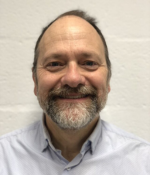Meet the PI
Professor - College of Life Sciences, Peking University
Beijing, China
Website: https://www.bio.pku.edu.cn/enhomes/news/teacher_dis/93.html
Questions:
What is the research focus of your lab?
By using zebrafish as a major vertebrate model, we are mainly interested in (1) Genetic tools: Development and application of genome editing techniques for functional genomics studies, including labeling of gene expression, manipulation, and screening of gene function; (2) Genetic mechanisms: Dissecting the genetic basis of development and regeneration of important vertebrate organs, especially the heart and pancreas.
How long have you been working with zebrafish? How long have you had your own lab?
I have been working with zebrafish for more than twenty years and have been running my lab for about 18 years.
Getting to know you better
Where were you born/where did you grow up?
I was born in Shanhaiguan (meaning: “the pass between mountain and sea”) District, Qinhuangdao City, Hebei Province in northern China. Shanhaiguan is a beautiful place surrounded by mountains and sea. It is known as the "First Pass of the Great Wall" since it is located at the easternmost end of the Great Wall. I left Shanhaiguan when I was three years old and lived in Xuchang, Henan Province, for about seven years before moving to Beijing. I stayed here since then, except for nearly five years of postdoc training in Switzerland and two short studies as a visiting scholar in USA.
Tell us something about yourself in one sentence.
I was thrilled and am now still fascinated by the power of genetics. I'm so lucky and glad to get the opportunity to turn my interests and curiosity into a challenging but enjoyable career, especially thanks to zebrafish and the friendly zebrafish research community.
Science
Which of the current projects in your lab you are most excited about?
An accidental and preliminary discovery of a new phenomenon during cardiac development and regeneration.
What advice would you give to someone considering a career in science/research?
There are many concerns as well as uncertainties when pursuing a career, but I think the most important concern is whether it fits you. The best situation is when the job meets both your talents/characteristics and interests. An academic career is one of the most challenging career paths with clear and special requirements for talents/characteristics, such as the habit and ability of critical thinking, the aspiration to knowledge, insightful understanding, an inquiring mind, the courage to explore unknown boundaries of our knowledge, and being prepared to take the blow of frequent failure. Regarding interests, I think curiosity is crucial for a successful academic career since curiosity can help you to enjoy the journey of exploration. It allows you to focus on digging into the problem rather than only concerning yourself with the final results or achievements and worrying about personal gains and losses. As the saying goes, interest is the best teacher; forced love does not last. Please think extremely carefully about whether you really meet these requirements before making the decision to take a career on the academic path.
Which part of the PI job you enjoy the most? Why?
In my daily life, I enjoy discussing projects and experimental results with students and collaborators because it gives me a good sense of accomplishment. On the other hand, I’m always inspired by new data and/or new thoughts during discussions. From time to time, I also enjoy it when we are requested for experimental materials, and knowing our work could help others gives me another type of sense of accomplishment.  
Outside of work
What do you enjoy doing outside of work/lab?
I usually enjoy reading and spending time with my family after work.
What career would you have liked if you were not a scientist?
I might have tried to become an astronaut (attracted by science fiction) or to work for animal breeding and protection (especially birds) if I hadn't become a scientist. I love birds and have had experiences with them. I also quite enjoyed raising chickens, ducks, silkworms, and even a baby owl during my spare time of graduate study.

Professor - College Dentistry
University of Washington
Seattle, Washington, USA
Website: https://www.cornell-lab.org/
Questions:
What is the research focus of your lab?
The unifying theme of projects in my group is the transcriptional regulatory networks (TRNs) governing cellular differentiation. I have a project studying the TRN in oral epithelium, which is relevant to genetic risk for orofacial cleft, and one on the TRN in melanocyte stem cells, which may be relevant to how such cells transform into melanoma. We are also working to identify the non-coding variants that directly predispose embryos to orofacial cleft.
How long have you been working with zebrafish? How long have you had your own lab?
I started studying zebrafish as a postdoc with Judith Eisen at the University of Oregon, and I have had my own group since 2001, first at the University of Iowa and then, since 2021, at the University of Washington.
Getting to know you better
Where were you born/where did you grow up?
I grew up in Cambridge, Massachusetts. My father was a professor of civil engineering at MIT, and my mother was a high school English teacher.
Tell us something about yourself in one sentence.
I spent fourth grade in Portugal.
Science
Which of the current projects in your lab you are most excited about?
No favorites!
What advice would you give to someone considering a career in science/research?
When I started my group at the University of Iowa, I submitted several unsuccessful NIH R01 applications on the TRN governing specification of the neural crest. While this is an interesting question in basic developmental biology, it is probably not clinically relevant. At Iowa, I met Jeff Murray, a human geneticist who discovered that the gene mutated in the most common syndromic form of orofacial cleft, IRF6. Subsequently, I wrote a successful application to a foundation on the function of Irf6 in zebrafish embryos. Ever since then, I have had the best luck with applications with a clear connection to a genetic disorder.
Which part of the PI job you enjoy the most? Why?
I love it when trainees share results from successful experiments and to sense their excitement. I remember how infrequent those days were when I was on the bench.
Outside of work
What do you enjoy doing outside of work/lab?
I like running, cooking, playing Bridge, reading fiction, and playing drums with other amateur jazz musicians.
What career would you have liked if you were not a scientist?
My plan B was always to teach high school.





